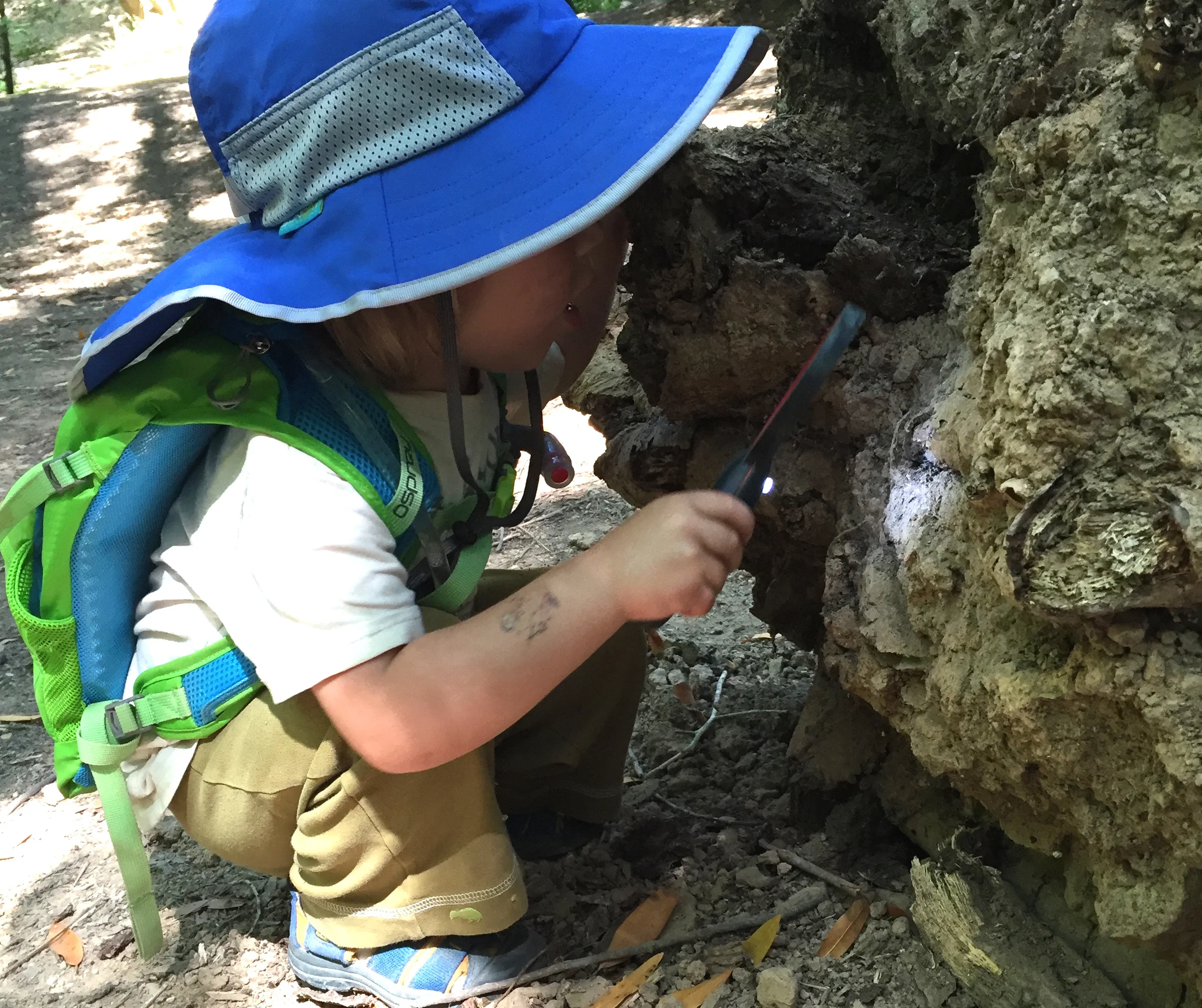Half Acre Woods Methods
We spend our entire day outside exploring and questioning the natural phenomena that we see. Throughout the day educators model science practice, being sure to label science skills demonstrated as we go. It is important children learn the language of science along with the practice, and everything we discuss is based on context.
We never represent an educator as someone with all the answers. Science is about gathering evidence to support a claim or explanation. One of the very close ties science has with social emotional development is fostering the skill of constructive argument. We value learning to agree and disagree, taking stock of new observations, and allowing new information to change your mind.
Seminal Research
Back in the 1980s R. T. Tanner began to study the significant life experiences that lead to environmental sensitivity. His findings determined that, "time spent in the outdoors as a child," was the most significant factor in fostering future conservationists. Later in 1982 Nancy Peterson, and in 1999 Louise Chawla, followed up on this work. Their findings supported the theory that time spent in the outdoors in relatively pristine settings was a significant factor, but having a role model to demonstrate the value and the richness of nature was equally as important.
A Tale of two fields
After 7 years of studying and working in the field of Environmental Education, I began to gravitate to the work happening in the realm of Early Childhood Education, namely the research in Social Emotional Development. It appeared to me there was a lot more common ground here then meets the eye. What I find fascinating is the overlap in the fields, empathy. That all too precious thing that can bond us to nature, to each other, and inspire us to care for those around us as we would ourselves, is a key component in both fields of study.
As Environmental Educators try to find ways to foster children's empathy for the non-human beings and elements in our world, Early Childhood Educators try to find ways to foster children's empathy for all that is human. Both fields working to innovate standards for learning as they develop, trying to gain momentum and value in the eyes of educators, school boards, and states.
A WELCOME CHANGE FOR SCIENCE
As these two fields evolve and grow, along come the Next Generation Science Standards. Now while the connection between Environmental Education and formal science teaching may be more obvious, where is the connection to social emotional development, you may ask? At the heart of science is the ability to be wrong, to change your mind, to agree and disagree respectfully. The new standards reflect this, they are no longer about what students will "know" but about how students think and how they interact with each other.
Scientists need to be able to observe objectively, gather evidence and formulate explanations, they then present these findings to other scientists to weigh in on. Fittingly, the key skills children will need to build to be ready for Next Generation Science in the classroom are the ability to observe, gather evidence, and construct explanations. Here is where social emotional skills kick in. Children will practice changing their opinion based on new information. When the objective is not one right answer, the value of who is wrong and right diminishes, and everyone's interpretation of the evidence has value. Science can teach us to treat each other with respect and kindness while forming a connection with the natural world and each other. It was in this sentiment that Half Acre Woods was created.
Recommended Reading For parents:
Richard Louv- Last Child in the Woods
Claire Warden- Potential of a Puddle
Dorothy Singer- A Piaget Primer: How a child thinks
ARTICLES (ALSO SEE OUR FACEBOOK PAGE FOR MORE)
David Sobel- http://www.yesmagazine.org/issues/education-for-life/803
Ecophobia is what can happen when we teach abstract concepts like climate change too young. This Sobel article is an easy read that will give you the basics of this thinking on ecophobia.
Favorite Children's Books:
The Lorax- by Dr. Seuss
F is for Feelings- by Goldie Millar & Lisa Berger
Redwall- by Brian Jacques
The Kissing Hand- by Audrey Penn
